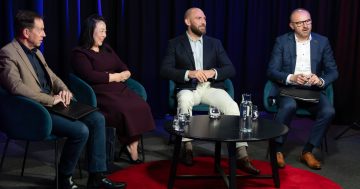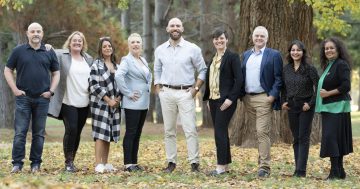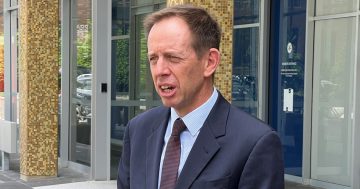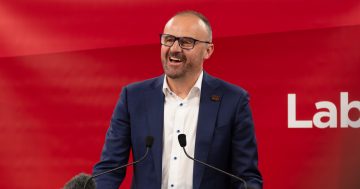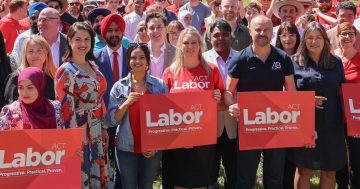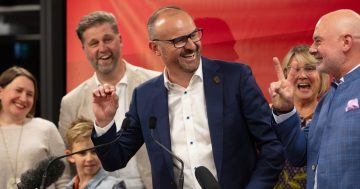The last local Government elections were fought in the shadow of a federal election. The upcoming ones will be fought in the shadow of the NSW local government elections. In trying to crystal ball-gaze we need to come to grips with what a dramatic change this represents.
The 2004 election went unusually well for Labor. They seized the first ever majority government in the ACT, all the more dramatic because our un-checked uni-cameral system was designed on the assumption that majority government would be impossible.
To a large extent that vote was determined by the Federal election where John Howard thumped Mark Latham.
Local politics got only minimal play, and local Labor was boosted by Canberra’s anti-Howard backlash.
My reading of the results is that the federal election was worth a seat in each electorate for Labor.
This time around local issues will dominate the debate all the way from here to the third weekend in October.
And over the border in NSW they’re having their own local government elections in September. The dominant theme of that election is who can most perfectly reflect the desires of the property developers which are bank-rolling the campaigns.
Developers appear to have lost faith in the political parties and are planning to run their own candidates under a variety of different slogans.
That push is going to splash over the border with our own election just a month later.
We should not, however, abandon hope. Simply splashing cash around has cost many a vanity candidate in Canberra large chunks of their personal fortunes.
But it’s a context you’re well advised to apply to any and all of the new parties vying for your attention.
Greens
In that context the only party for those concerned by the influence of developers will be the Greens. So they could do much better this time around, probably at Labor’s expense.
I’d chalk them up to pick up another two seats in each electorate, to a total of three.
This assumes they don’t have any bone-headed policy explosions. Their decision to refuse RiotACT media access to their campaign launch two weeks ago showed poor judgment remains a problem for them in our opinion.
Liberals
This also bodes ill for the Liberals. Their seven seats (at the last election, less Richard Mulcahy who stormed out of the party) would appear to represent some low-hanging fruit for the new parties.
Mulcahy
RiotACT has its differences with Richard Mulcahy but we have never questioned his hard work and smart politics. If the big dollars roll in for him don’t make the mistake of thinking he’ll be another Helen Cross. Having said that it’s hard to see him winning more than one seat.
Community Alliance and Pangallo
Big fish in their small ponds they’re going to have to campaign out of their skins to convince the wider public to vote for them.
Liberal Democratic Party
Advertisers here on RiotACT, they’re always going to struggle selling a small-government/personal-freedom message in a town like Canberra where people tend to see the merits of big government solutions, if only because those are the things they’re used to.
A commitment to Liberty and Democracy is also likely to see a party supporting unpopular causes.
One suspects if they can get their message heard they’ll mostly go home happy.
Free Range Canberra and the Motorist Party are similarly motivated. But giving them your first vote will send a powerful message if you’re so inclined.
ungrouped ex-Democrats
They might, just might, ride a wave of nostalgia and regret into something solid, but it’ll have to be one hell of a campaign.
Prediction
Without a lot of confidence, because this will be a tough campaign, I’d guess the next assembly could well look like this:
Labor: 6
Liberal: 5
Green: 3
Mulcahy: 1
That leaves two seats I’ve got no idea as to how they’ll break.













